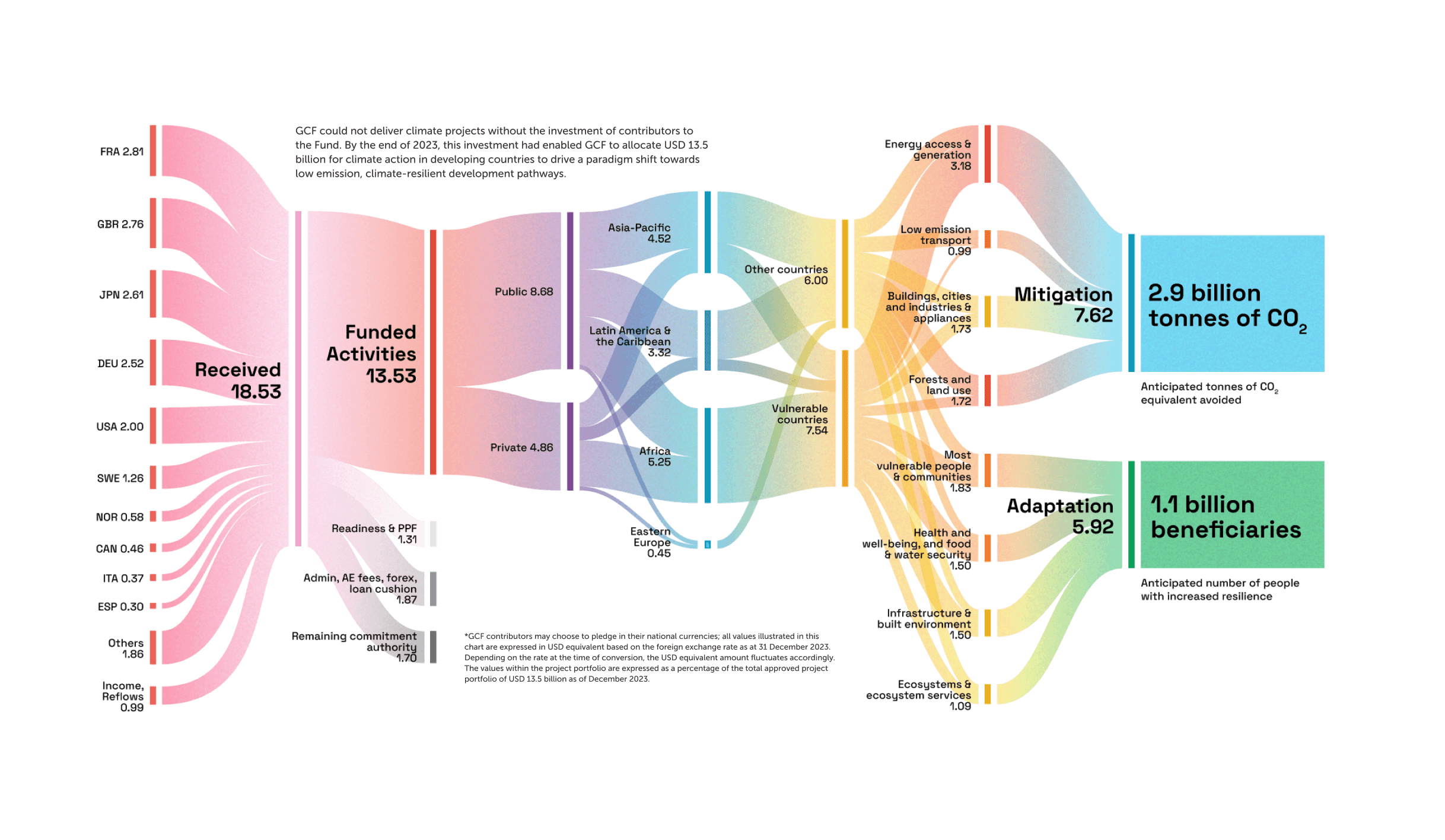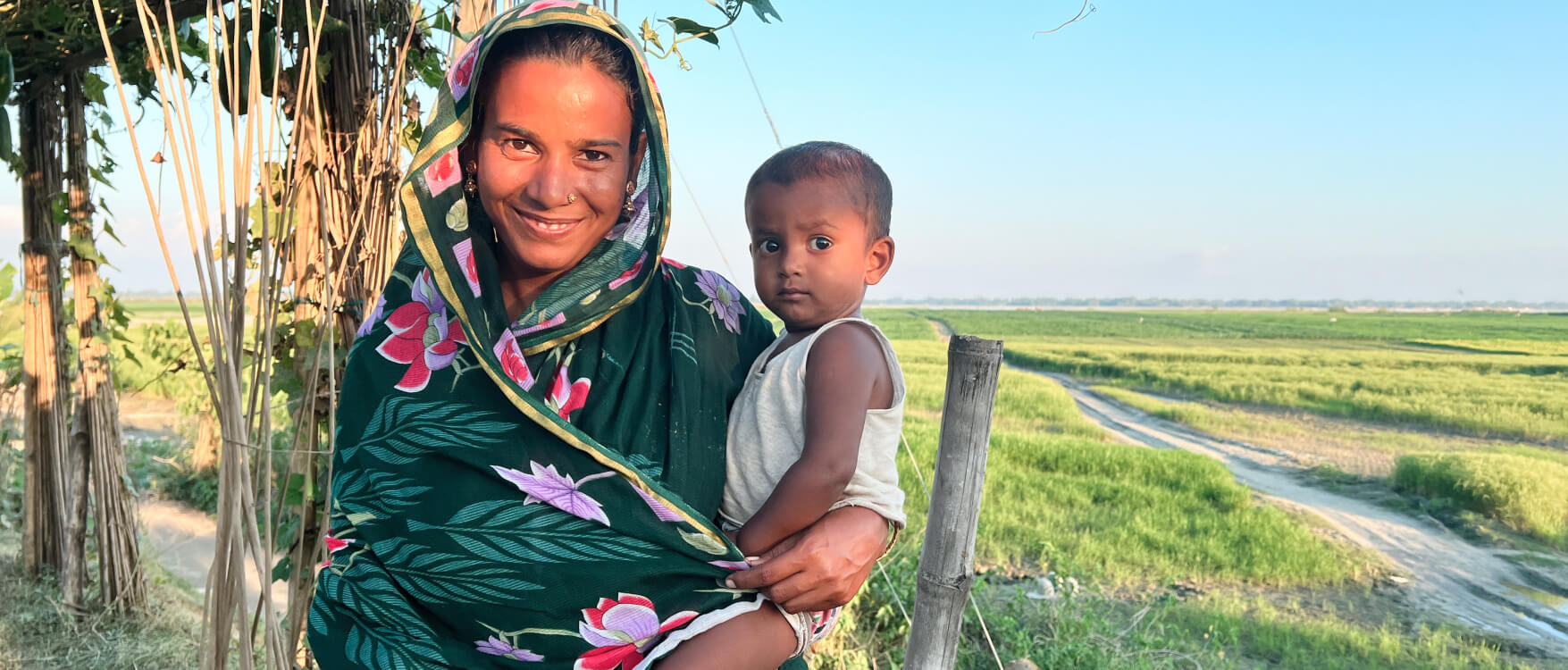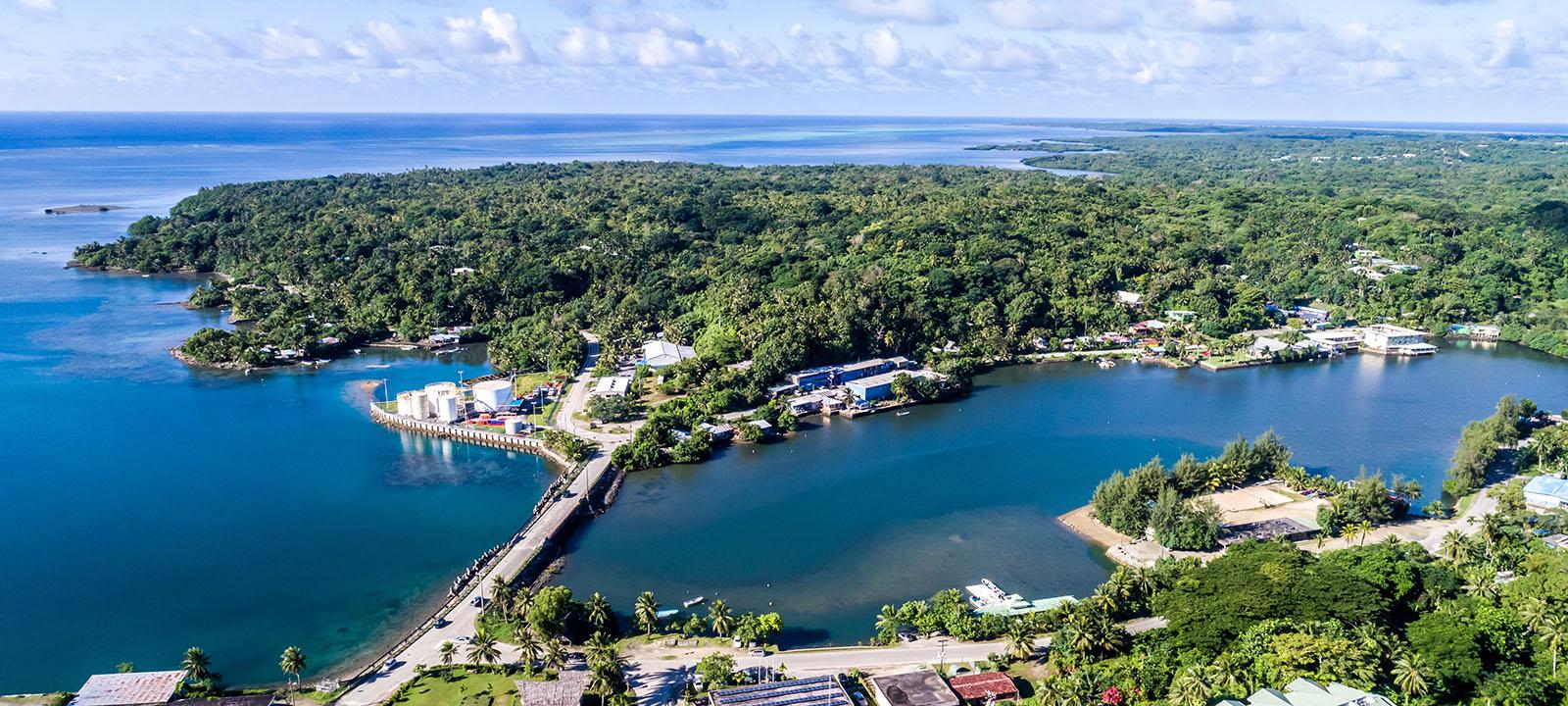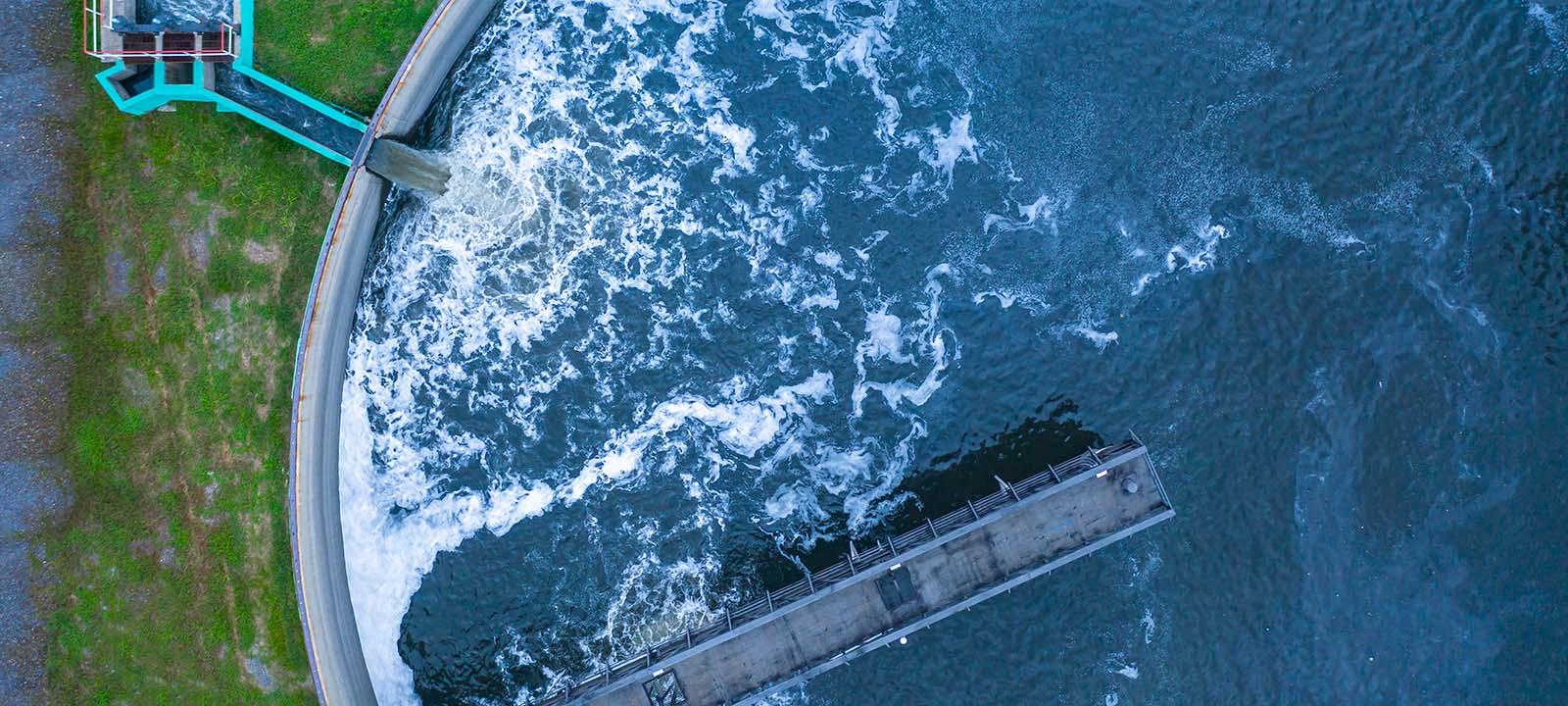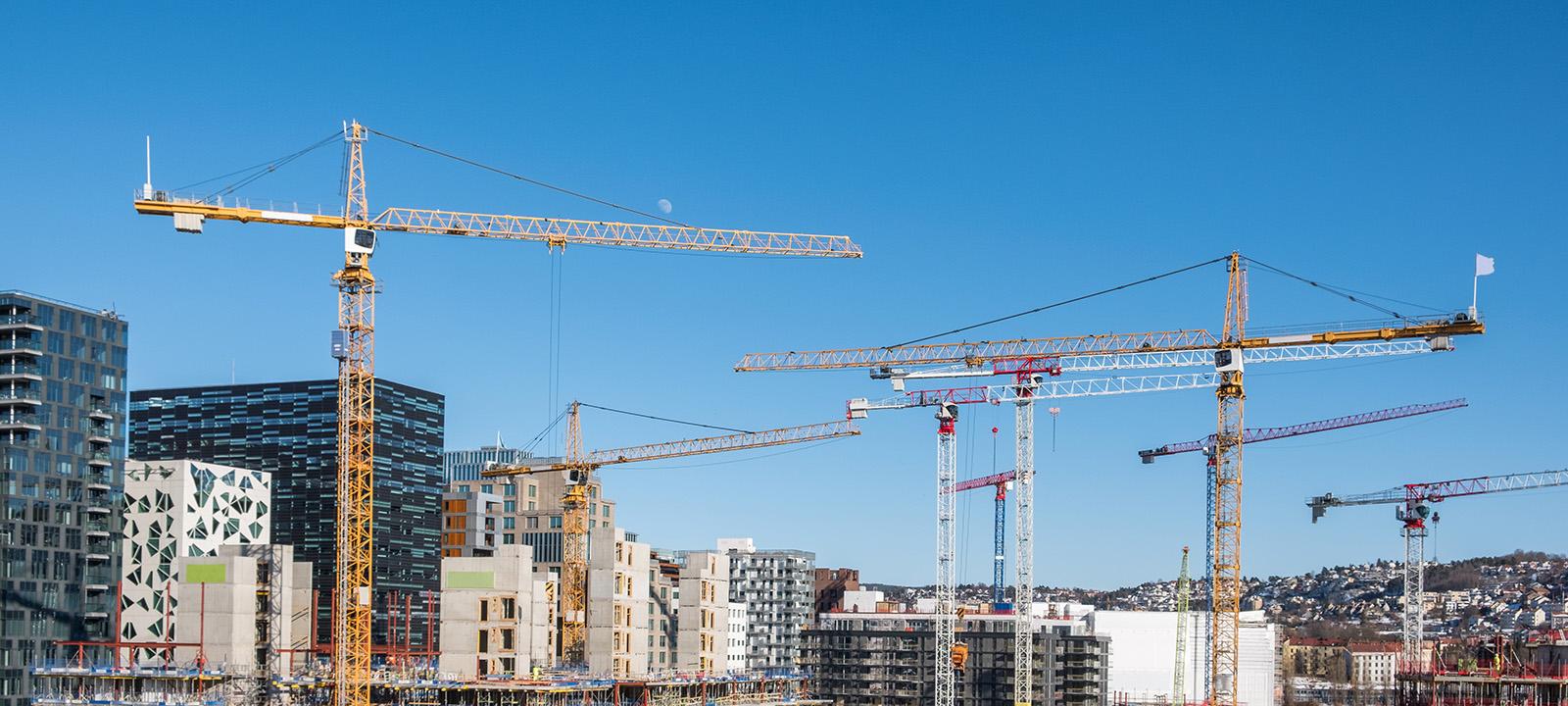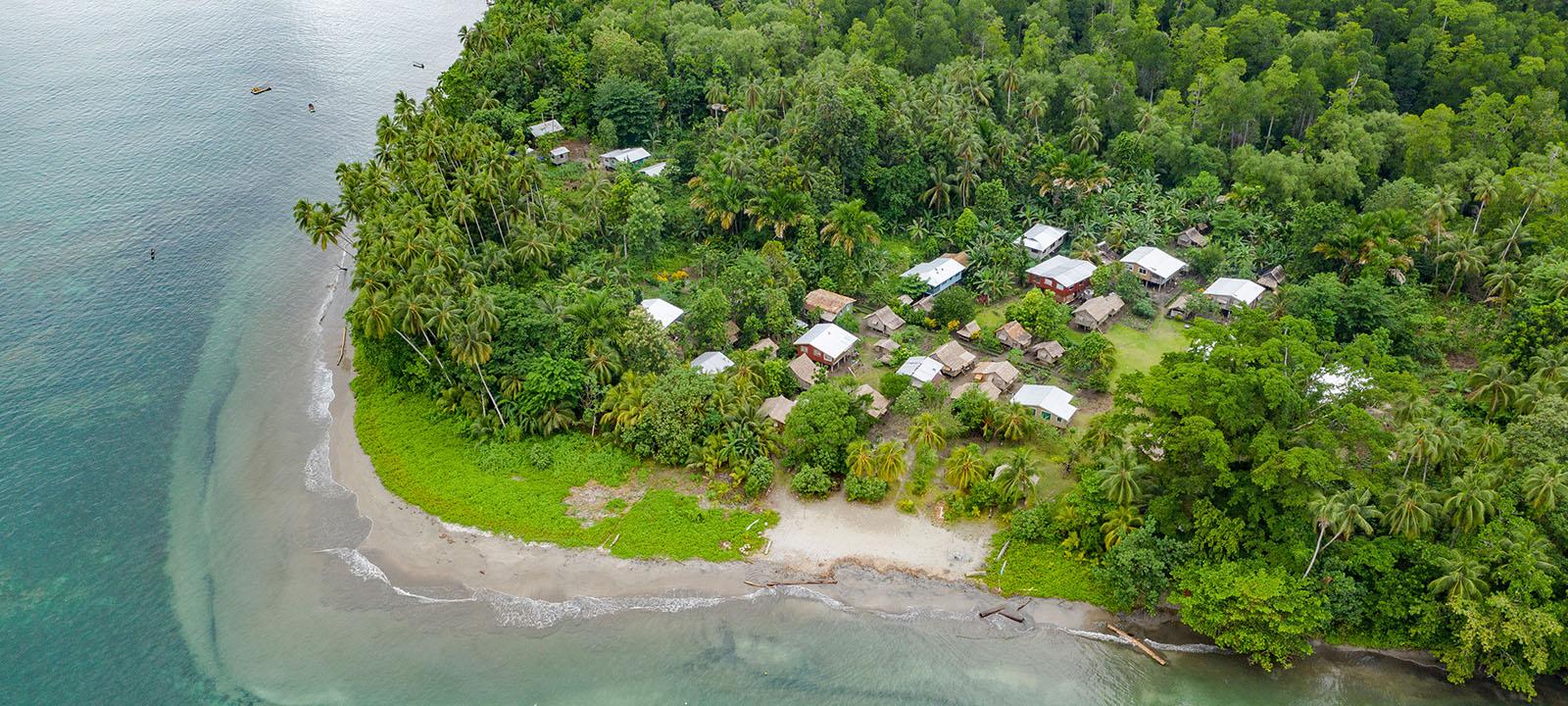
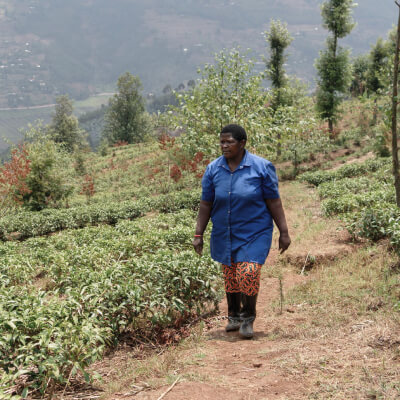

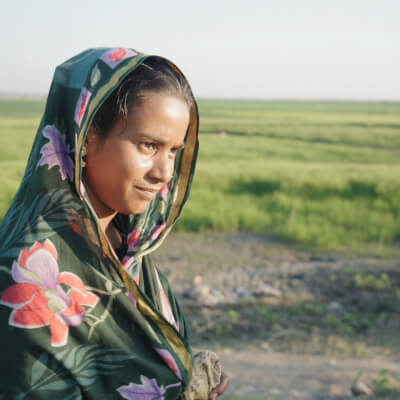
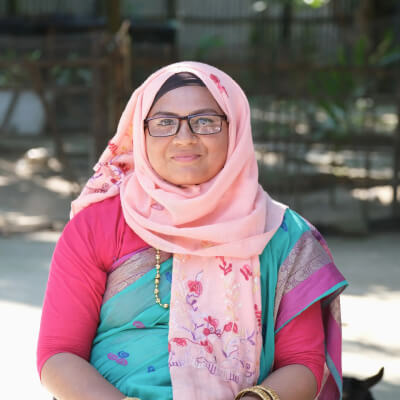
Annual
Report 2023
Raising
ambition.
Empowering
action.
It was a pivotal year for the Green Climate Fund (GCF) with several milestones: the culmination of its 2020-2023 programming period with a maturing portfolio of USD 13.5 billion invested in 243 projects across 129 developing countries; a record-breaking replenishment of USD 12.8 billion for its next programming period; and new leadership ushering in a new chapter for the Fund.
It was a pivotal year for the planet, the hottest on record, with heatwaves, floods, droughts, and tropical cyclones putting 3.3 billion people at risk. According to scientists, human activities increased global temperatures to 1.1°C above pre-industrial levels. If urgent action is not taken, there is a more than 50% chance of exceeding the Paris Agreement target of 1.5°C by the end of the century. Yet global crises such as geopolitical tensions, armed conflicts, high inflation, and energy shortages threaten to delay climate action.
GCF's role is more crucial than ever. With its unique mandate, resources, global partner network, financing tools, and country-focused approach, GCF channels and catalyses financing for developing countries to take climate action. Guided by its “50by30” vision and strategic plan, GCF aims to deliver impactful climate investments at scale to those most in need.
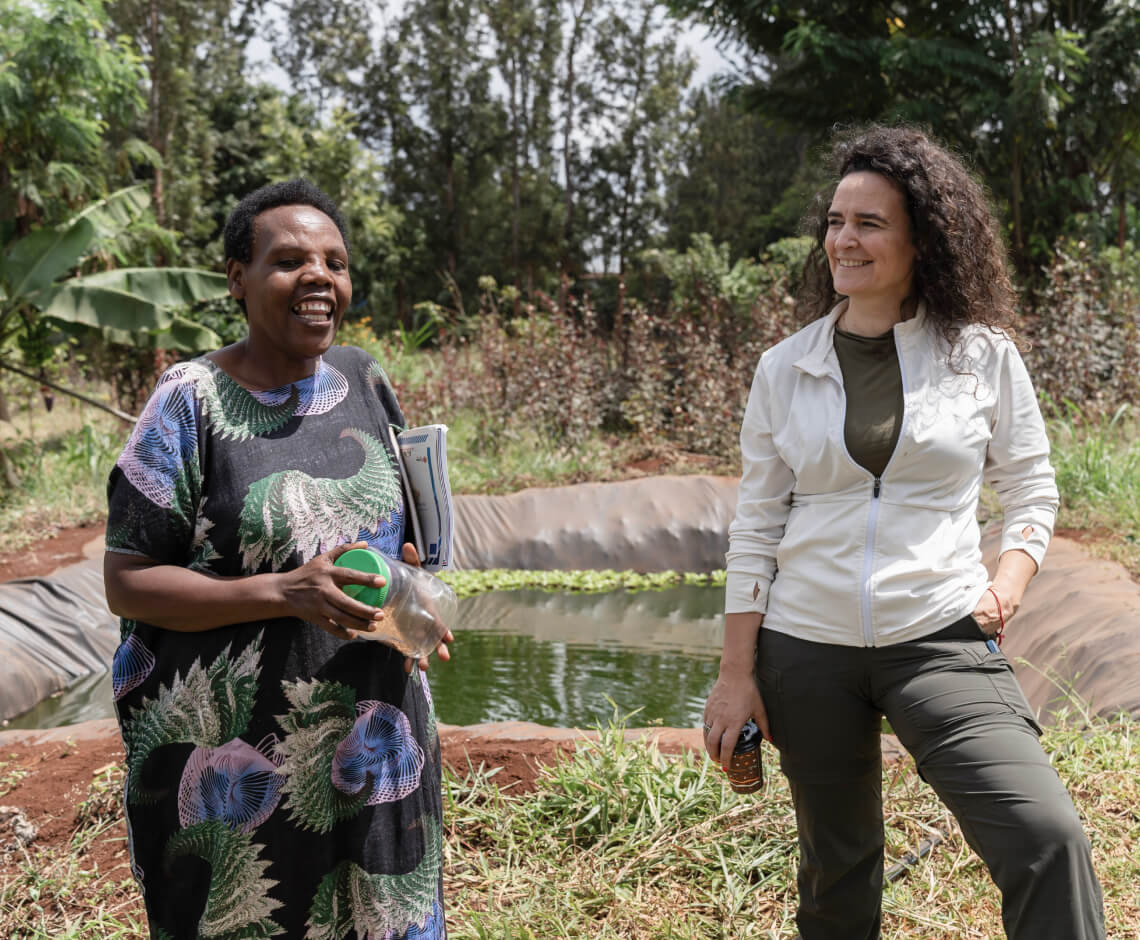
GCF Executive Director Mafalda Duarte (right) with Josephine Wangui Waweru (left), a coffee farmer and entrepreneur in Kenya. Thanks to support from the GCF-funded Acumen Resilient Agriculture Fund (ARAF), Josephine has been able to sustainably grow her coffee farm into a thriving business through low-cost, pay-as-you-go solar irrigation. Photo: © GCF / Andy Ball
To those calling for change, we hear you. This marks the beginning of a chapter of institutional reform and strengthening for GCF. I am grateful for the opportunity to be part of this transformation, and with your ongoing help, support developing countries in reaching their highest aspirations so that we all secure a better future.
Mafalda Duarte, GCF Executive Director
Read the letter from the ED
The year
in review
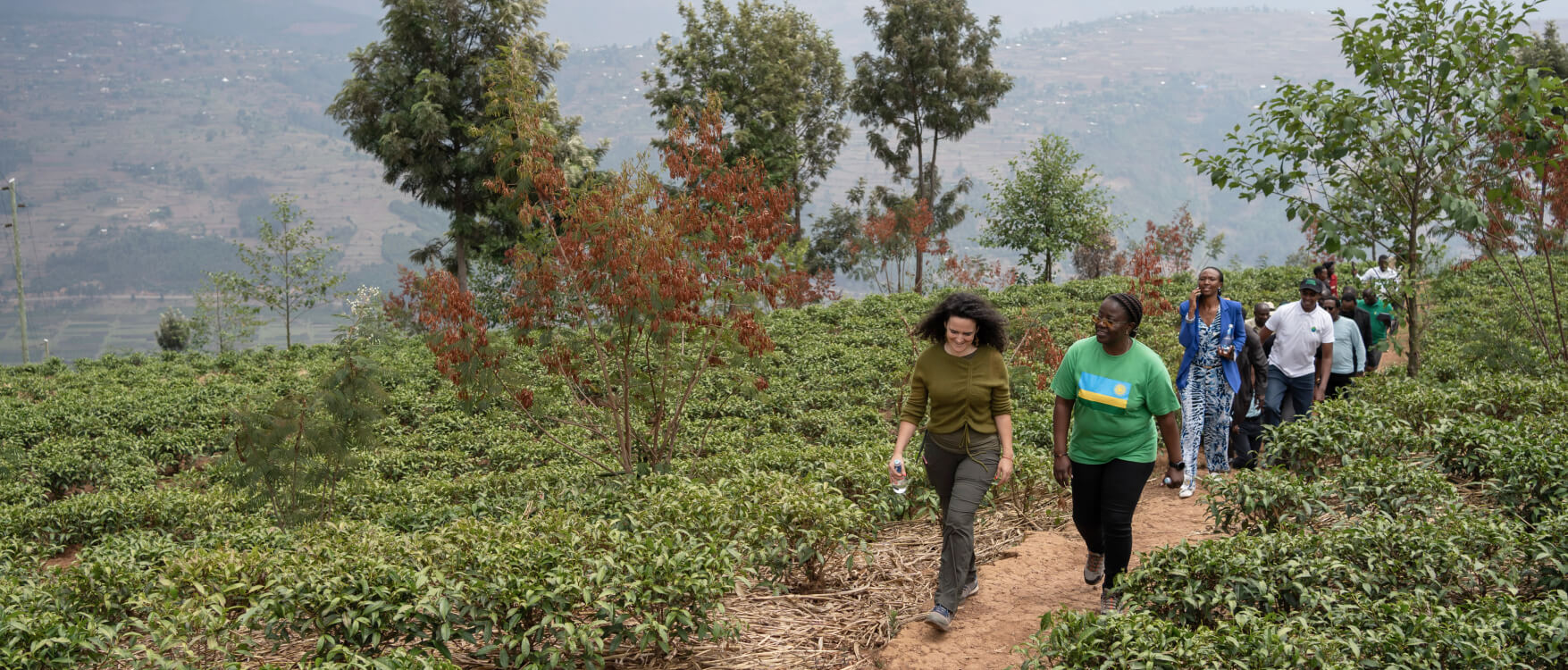
GCF Executive Director Mafalda Duarte (left) and former Rwanda Minister of Land and Environment Dr. Jeanne d'Arc Mujawamariya (right) visiting a GCF-backed climate resilience project in Gicumbi District, Rwanda in September 2023. Photo: © GCF / Andy Ball
In 2023,
GCF funded USD 2.1 billion for 34 new approved projects. By the year end, the Fund expanded its portfolio to a total of USD 13.5 billion (USD 51.8 billion with cofinancing) in 243 projects across 129 developing countries.
Delivery was increased with GCF disbursing USD 930.7 million to 110 projects on the ground in 2023. In total, almost USD 4 billion was disbursed and 84% of the portfolio was under implementation at the end of 2023.
See the portfolio dashboard here.


0.0
Billion
GCF committed USD 2.1b for 34 new projects in 2023
0.0
Million
GCF disbursed USD 930m to 110 projects in 2023
Financing for innovation and impact
The 34 new projects expand and diversify GCF’s portfolio, reflecting efforts to extend support to underrepresented regions and less-programmed areas like locally led adaptation and ecosystems. GCF made major inroads in early warning systems (EWS) and new areas like health and education in 2023. GCF is supporting the development of a large-scale EWS programme by UNDP and partners like WMO and UNDRRR, contributing to the Early Warnings for All initiative. It is also developing new projects in climate health financing with UNDP and WHO, and in education with Save the Children and Global Partnership for Education, which will be the first major climate finance investment in the education sector.
Making climate finance accessible
Enabling direct access to GCF resources is core to the Fund’s approach of working with and through developing countries for climate action. By the end of 2023, GCF accredited 22 new Direct Access Entities (DAE), raising the share of DAEs in its Accredited Entity network to 63%. The share of projects implemented by DAEs increased from 12% in 2019 to 23% in 2023. To broaden access, GCF launched a three-year pilot for the Project-specific Assessment Approach (PSAA), a new modality to provide funding for one-off projects to new partners not accredited by GCF.
The Pacific and many countries, particularly…SIDS have found it difficult at times to be able to access climate financing. So I’m very pleased that the way that GCF has evolved since its inception to take into account these challenges that have been put forward by Pacific countries in terms of the processes in accessing very critical funds to help build resilience. The new modalities that have been developed by GCF are to be applauded. We certainly look forward to having that speeded up process.
Mark Brown, Prime Minister, Cook Islands
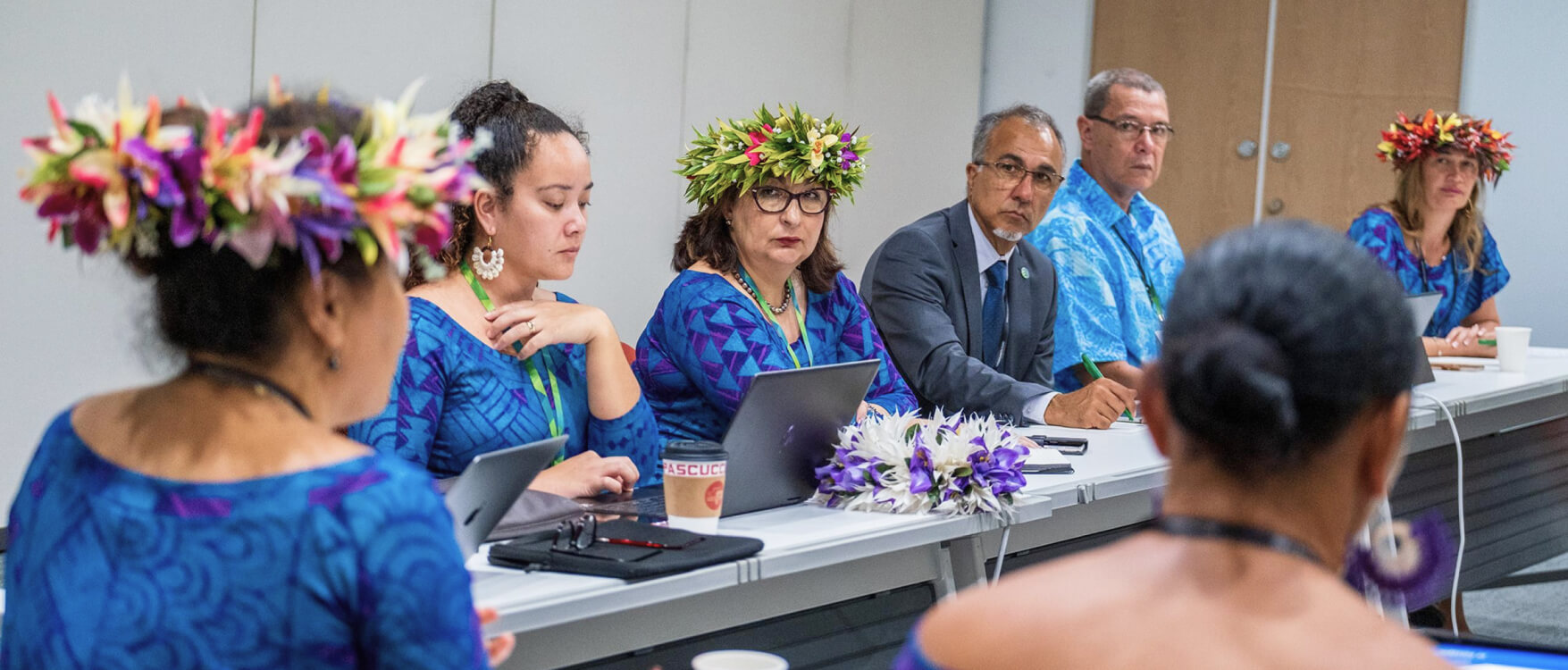
GCF Regional Dialogue with Asia and the Pacific in August 2023. Photo: ©GCF/ Brylle James Galang
Strengthening access and country ownership
GCF committed USD 321 million to 365 Readiness Programme grants and preparatory support for funding proposals for 135 countries from 2020-2023. By the end of 2023, 28 developing countries had their first project approved by GCF, including 20 single-country projects. And through Readiness support and other GCF resources, more DAEs were able to successfully design and develop funding proposals for GCF approval.
In 2023, GCF held three regional programming dialogues for Latin America and the Caribbean, Asia and the Pacific, and Africa to engage more with countries and understand their needs.
Recognising more needs to be done, GCF has been revising the Readiness Programme and a new strategy was approved in 2023 to make it more fit-for-purpose. In late 2023, GCF launched its internal reform agenda for efficiency and impact; it has several initiatives such as simplifying funding processes and systems, and reexamining its partnership model, including the accreditation process.
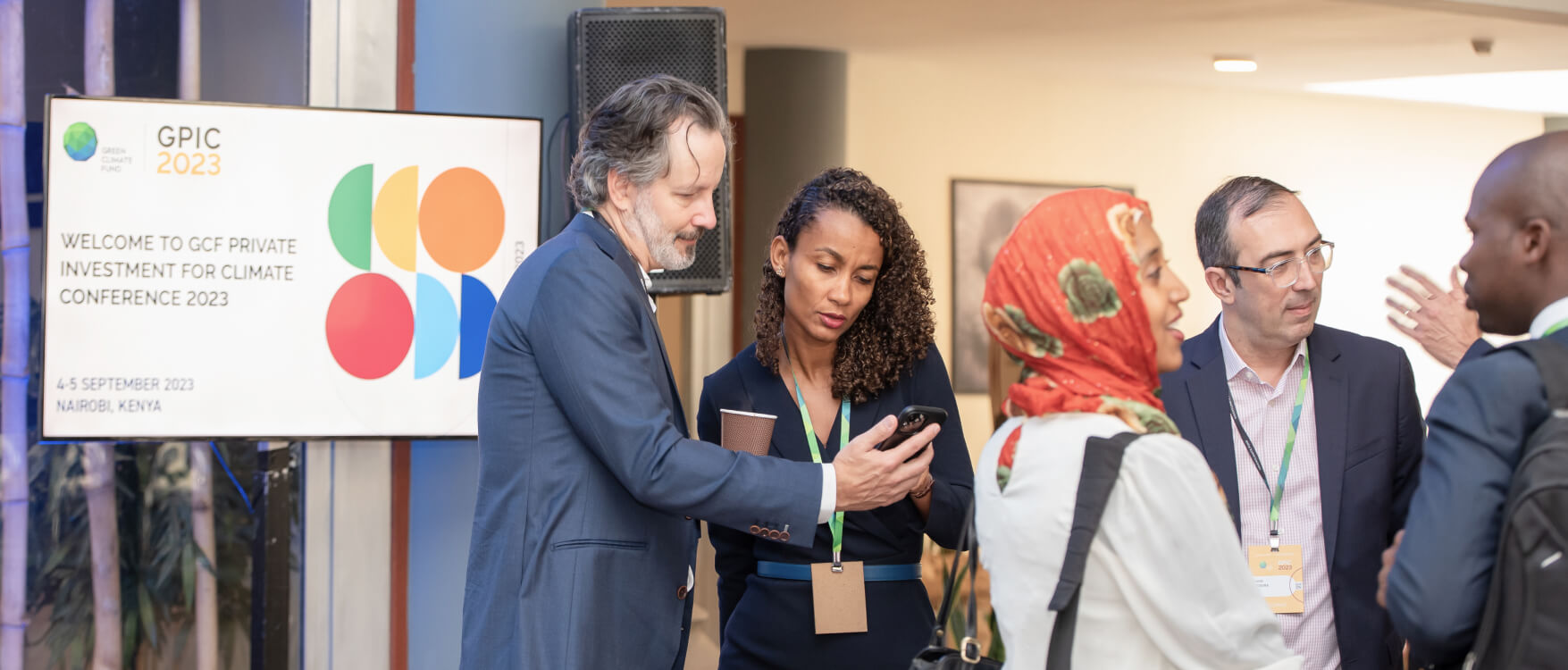
The 6th GCF Private Investment for Climate (GPIC) conference took place in September 2023 in Nairobi, Kenya. Photo: ©GCF/ PR Ventures
Mobilising private
capital
In 2023, GCF committed USD 917.4 million to 10 new private sector projects representing 44% of its programming volume that year. In total, GCF has committed over USD 5 billion to 60 private sector projects that will mobilise an additional USD 17.5 billion. Of this, USD 1.6 billion is in private equity, which is mobilising 5.5 times GCF capital at the fund level and at least an equal amount in downstream portfolio investment level.
Several innovative projects were approved in 2023: a climate-resilient infrastructure programme in Africa, a blended finance platform for loans for climate adaptation and mitigation investments (Project GAIA), and a new green bank in Barbados.
GCF held its 6th annual GCF Private Investment for Climate (GPIC) conference in Nairobi, Kenya. Over 400 participants attended, and nearly USD 2 billion worth of climate project ideas were discussed.
Few climate financiers are willing to take real risk to go into fragile, vulnerable economies. One of the only institutions out there that does that work is the Green Climate Fund.
Jacqueline Novogratz, CEO, Acumen
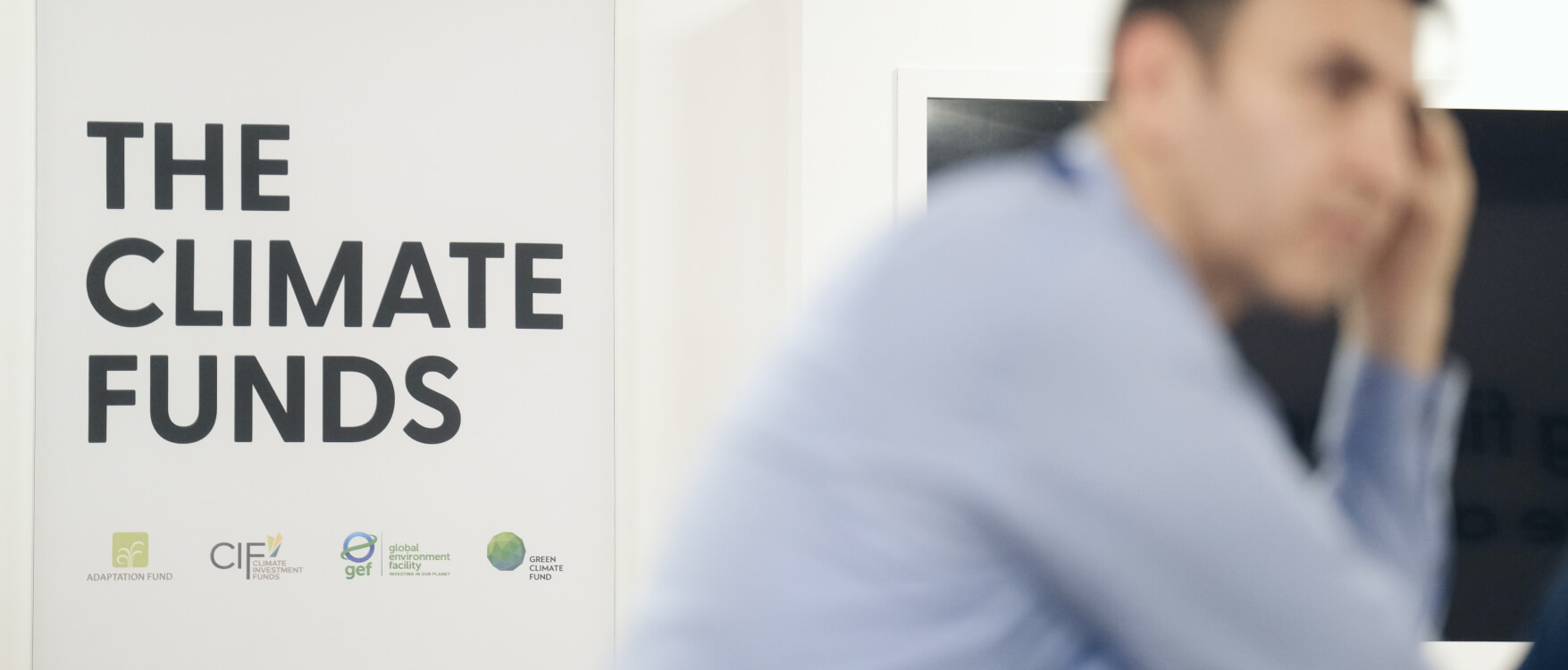
GCF, Adaptation Fund, CIF and GEF joined forces at COP28 with a joint pavilion and joint declaration on complementarity and coherence. Photo: ©GCF/ Brylle James Galang
Increasing global cooperation
For the first time ever, the four multilateral climate funds - GCF, Adaptation Fund, Climate Investment Funds (CIF), Global Environment Facility (GEF) - came together at COP28. They adopted a joint declaration to work together to enhance access and increase impact in response to the intensifying climate crisis.
Besides UNFCCC and UNDP, GCF is part of an interim secretariat for the Fund for responding to Loss and Damage, which was formally established at COP28. The interim secretariat will provide support during the transitional period for the emerging fund.
Our impact
At the end of 2023, 84% of GCF’s portfolio was under implementation. As the portfolio continues to grow and mature, projects are starting to deliver concrete results, indicating real change is happening. In its next programming period, GCF will focus more on measuring project outputs and outcomes, and strengthening its capacity in results monitoring, evaluation, learning, and data and analytics. And, most importantly, capturing the change in people’s lives.
In 2022,
it is estimated the GCF portfolio achieved emissions reduction amounting to 67.2 million tonnes of CO2 equivalent and benefitted 96 million people - 42 million directly and 54 million indirectly.

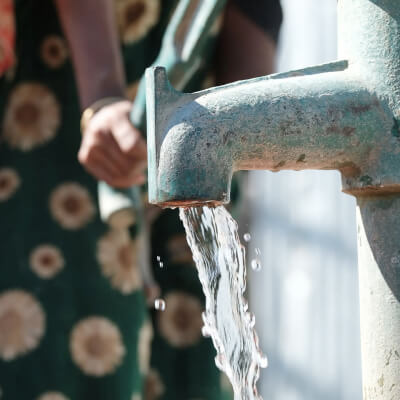
0.0
Million
Estimated number of people with increased resilience
0.0
Million
Estimated tonnes of CO2 equivalent avoided
Rising above: building climate resilience in Bangladesh’s char communities
-
- Total project value
- USD 13.3 m
-
- GCF financing
- USD 8.7 m
-
- Beneficiaries
- 190.0 k
I felt very good that the [project] raised the height of the house, built a goat shed and a latrine, and installed a tube well. Now, during the floods... I have clean water supply and the toilet doesn't fall apart anymore. We don't fall sick as much. My financial situation is roughly better. We don't have that stress anymore. Now, life is good.
Asia Begum, Farmer in Bangladesh’s Ashtamir Char
Asia Begum is among the many female-led households in Bangladesh’s char regions who have benefited from this project funded by GCF and implemented by Palli Karma-Sahayak Foundation.
Watch project video
GCF in
figures
USD 5.06B
121 projects
100 countries
Impacts
-
CO2
-
CO2
-
CO2
-
CO2
-
CO2
-
CO2
-
CO2
-
CO2
-
CO2
-
CO2
-
CO2
-
CO2
-
CO2
-
CO2
-
CO2
-
CO2
-
CO2
-
CO2
-
CO2
-
CO2
-
CO2
-
CO2
-
CO2
-
CO2
-
CO2
-
CO2
-
CO2
-
CO2
-
CO2
784M tCO2e
Mitigation
Anticipated
330M
Beneficiaries
Anticipated
FP124
Adaptation
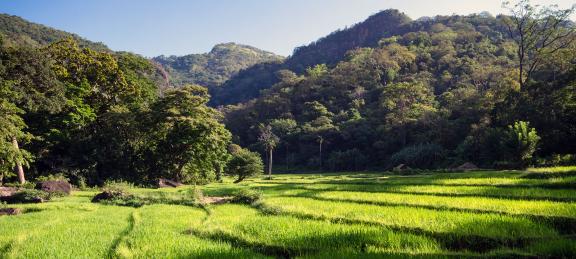
FP126
Cross-cutting
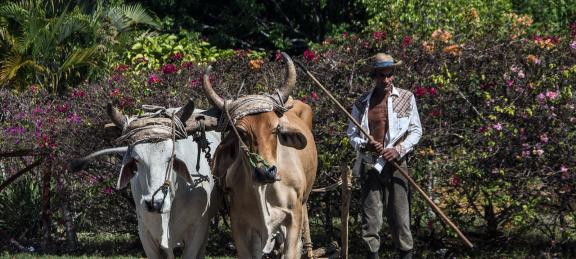
FP128
Mitigation
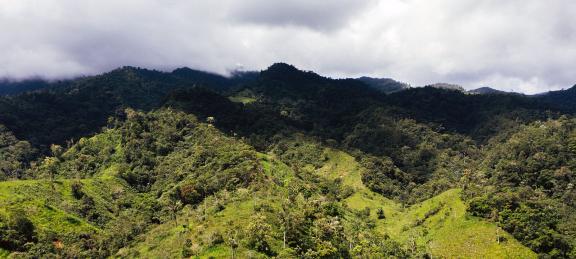
FP129
Mitigation
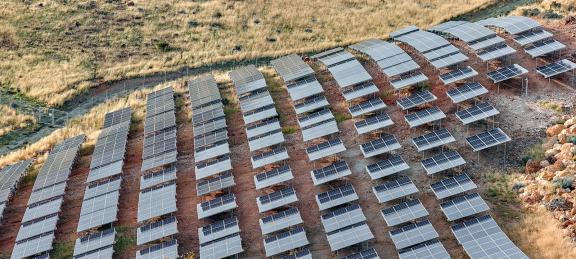
FP134
Mitigation
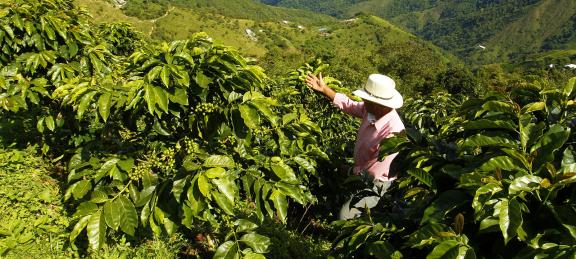
FP136
Cross-cutting
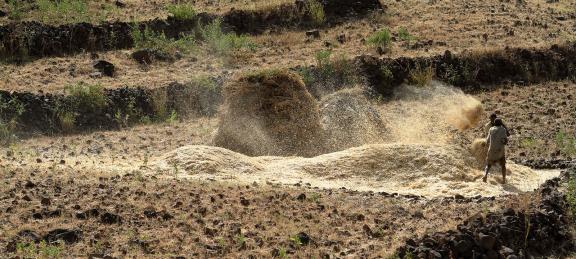
FP138
Mitigation
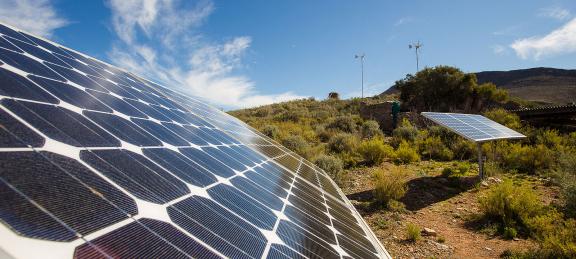
FP139
Adaptation
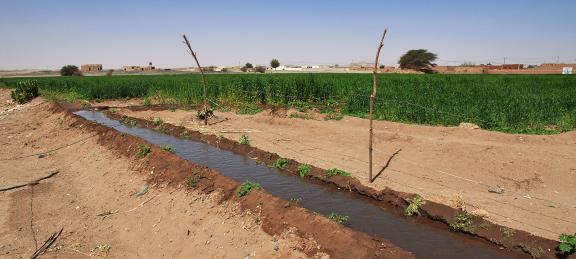
FP140
Mitigation
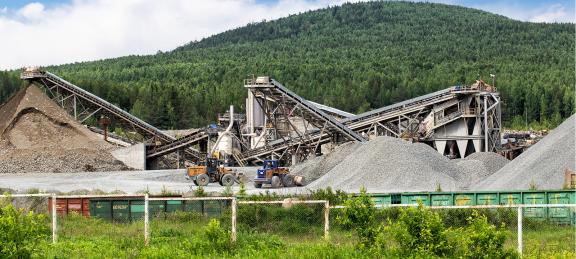
FP141
Adaptation
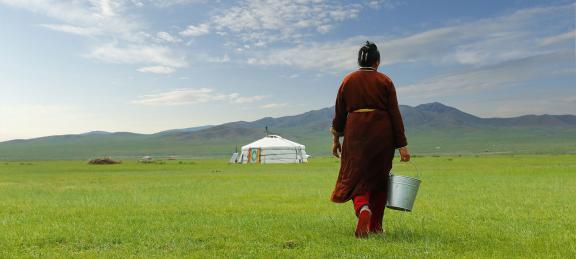
FP142
Mitigation
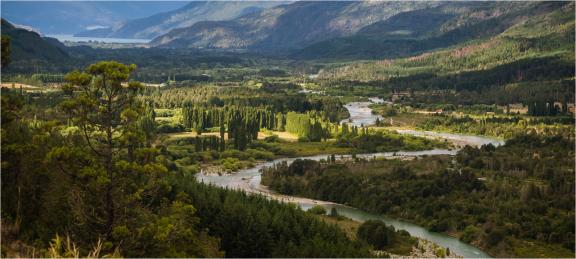
FP144
Mitigation
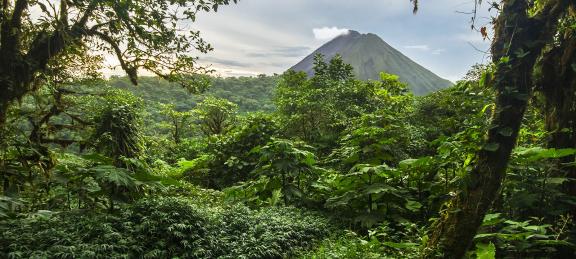
FP146
Mitigation
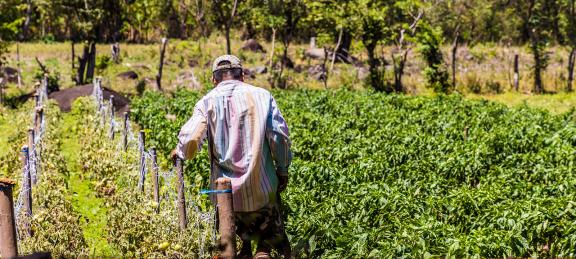
FP149
Mitigation
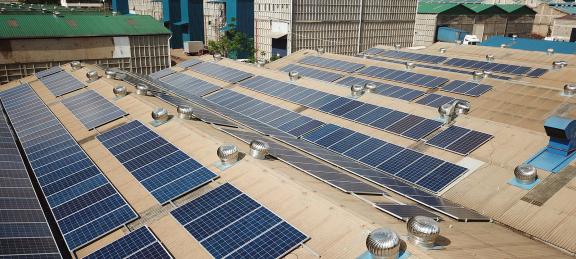
FP150
Mitigation

FP152
Mitigation
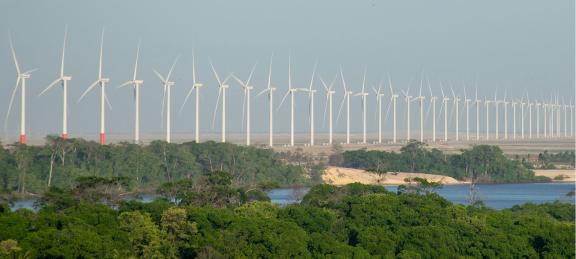
SAP015
Mitigation
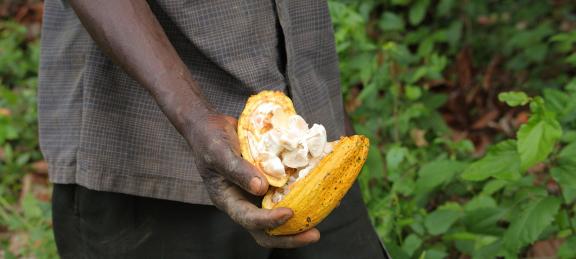
SAP016
Mitigation
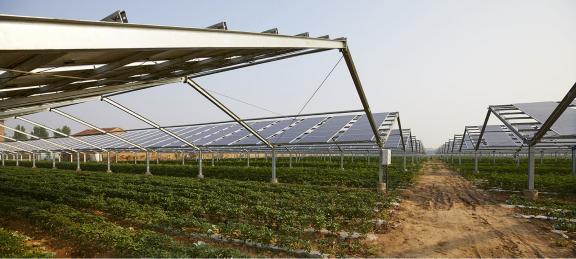
FP155
Adaptation
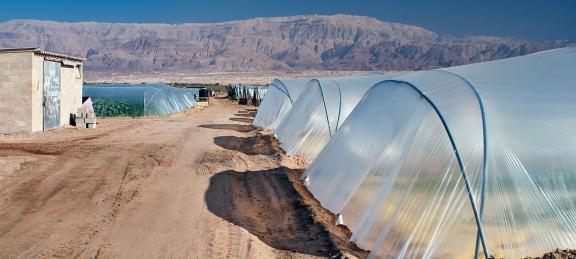
FP156
Mitigation
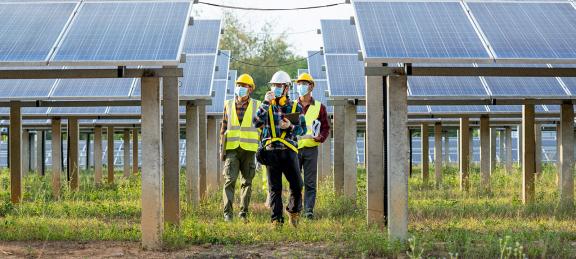
FP157
Adaptation
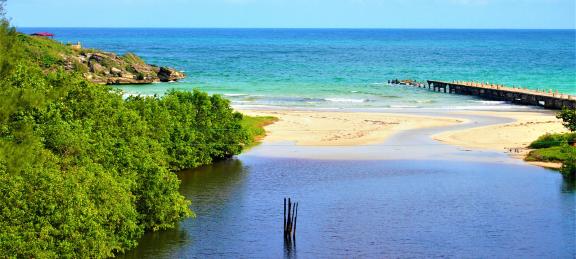
FP161
Adaptation
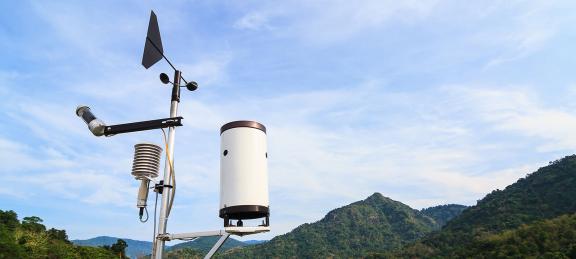
FP162
Cross-cutting

FP164
Mitigation
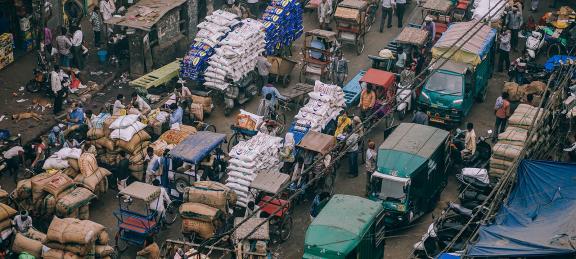
FP165
Adaptation
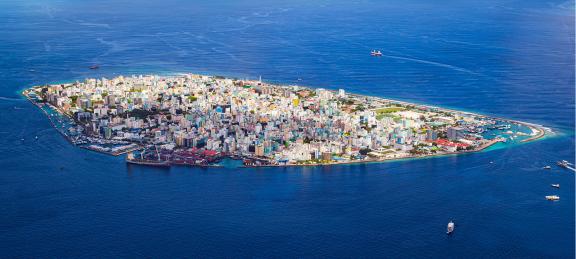
FP166
Mitigation

FP167
Cross-cutting
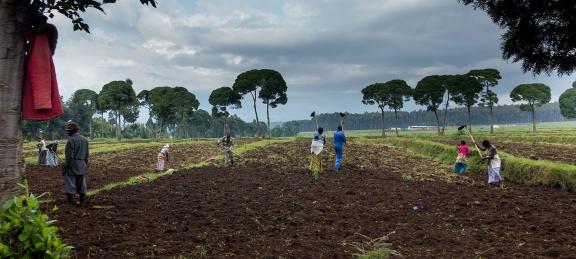
FP169
Adaptation
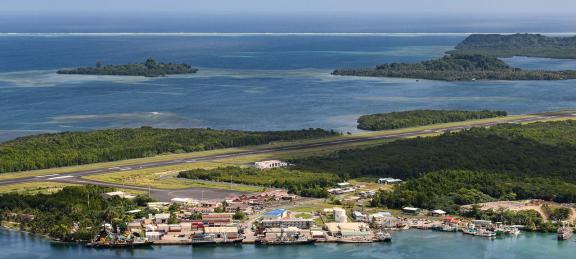
FP170
Adaptation

FP173
Cross-cutting
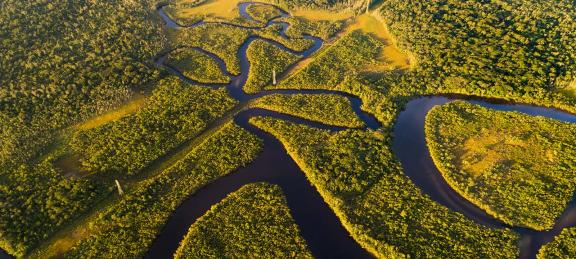
FP174
Adaptation
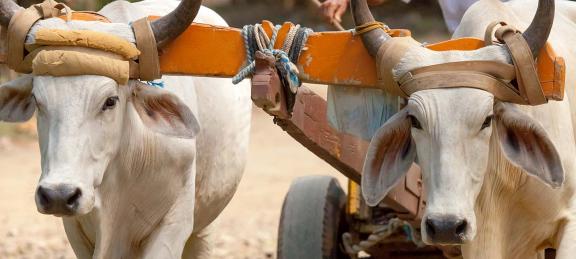
FP176
Cross-cutting
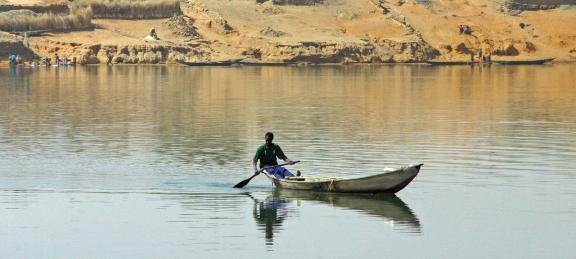
FP179
Adaptation

FP181
Adaptation
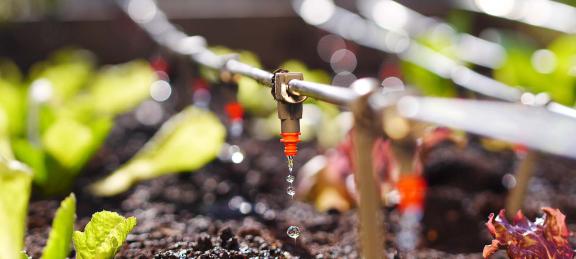
SAP021
Mitigation
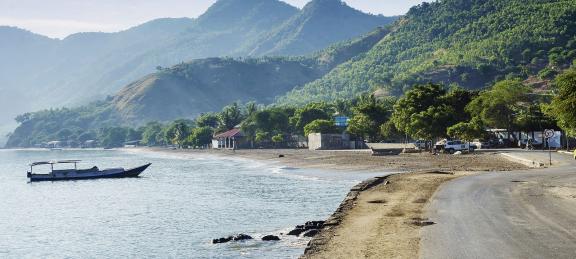
SAP022
Adaptation
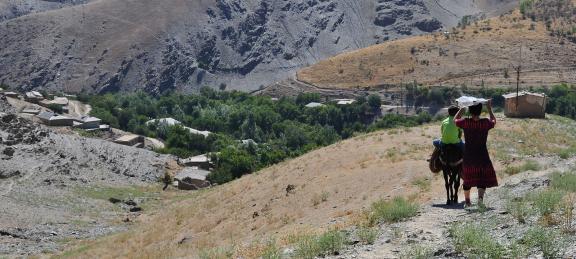
FP182
Cross-cutting

FP183
Cross-cutting
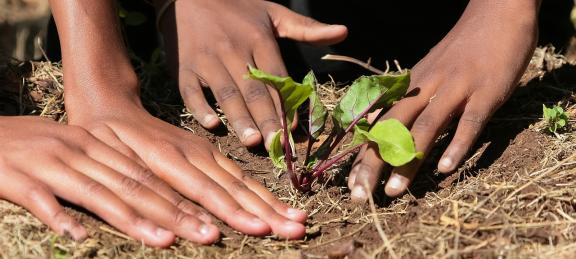
FP184
Adaptation
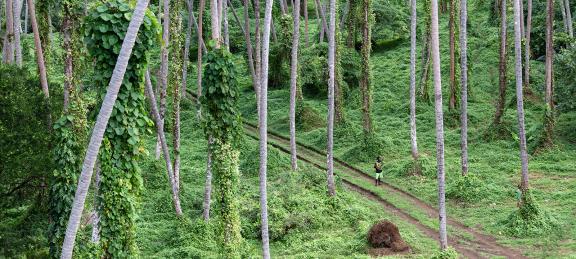
FP185
Cross-cutting

FP186
Mitigation
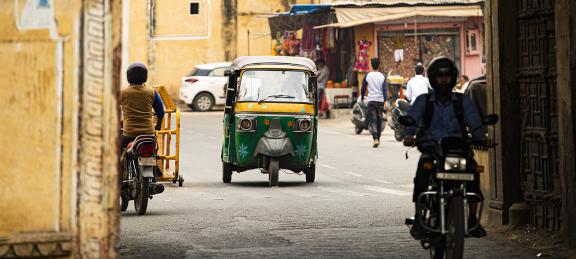
FP187
Cross-cutting
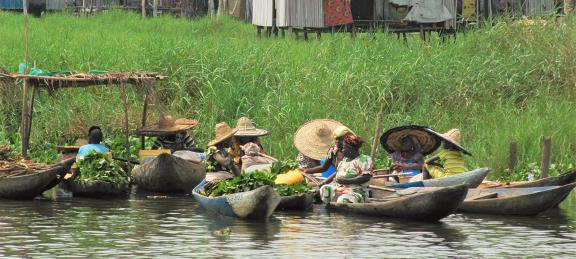
FP189
Cross-cutting

FP190
Cross-cutting
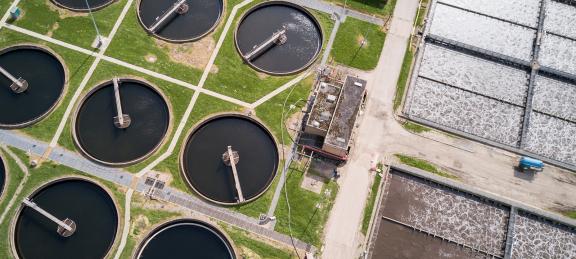
FP191
Adaptation
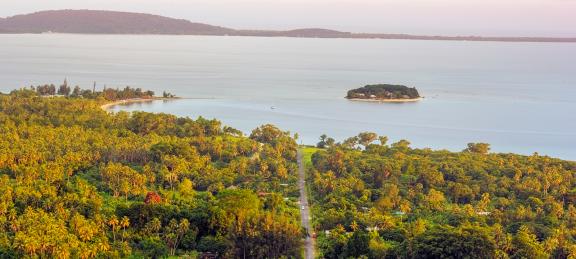
FP192
Cross-cutting
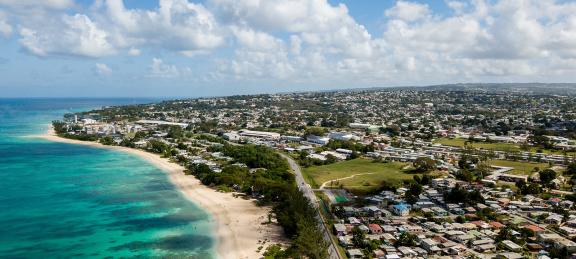
FP193
Mitigation
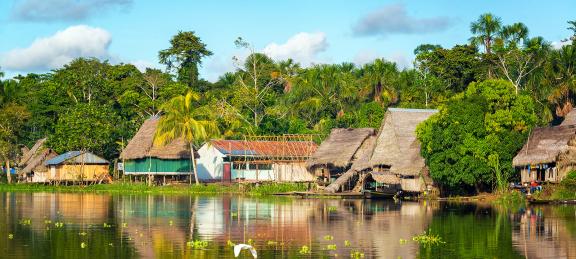
FP194
Cross-cutting
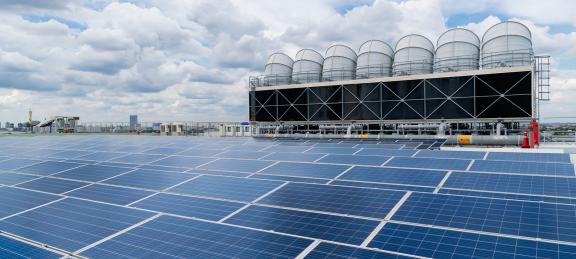
FP195
Mitigation

FP196
Mitigation
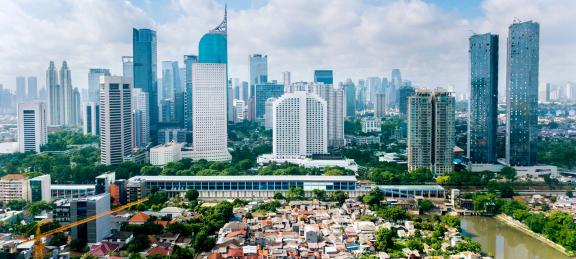
FP197
Cross-cutting
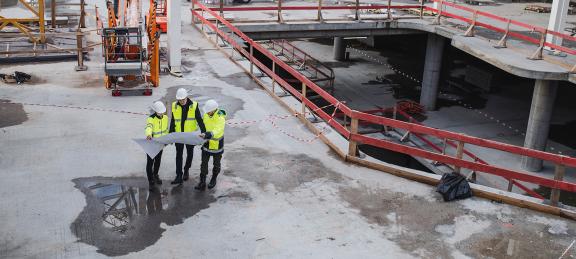
FP198
Mitigation

SAP024
Mitigation
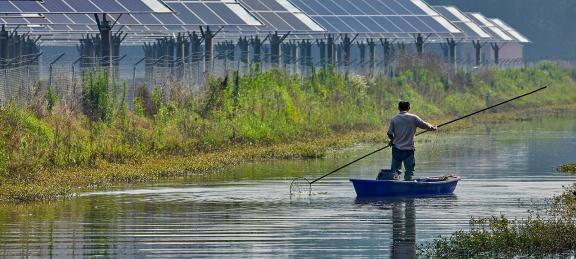
SAP025
Adaptation
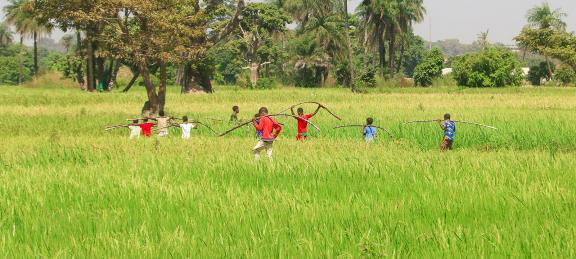
FP200
Cross-cutting
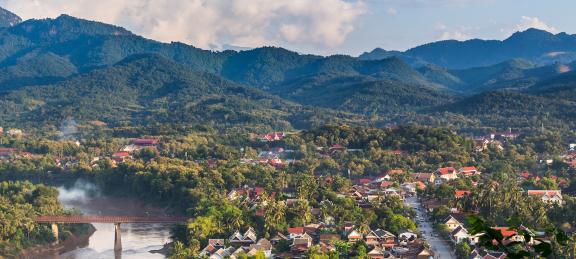
FP201
Cross-cutting
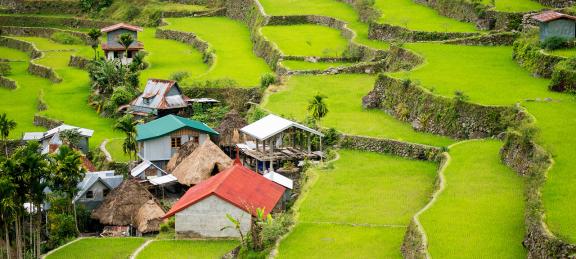
FP202
Adaptation

FP203
Cross-cutting

FP205
Adaptation

FP206
Adaptation

FP209
Adaptation

FP211
Cross-cutting

FP212
Cross-cutting

FP213
Cross-cutting
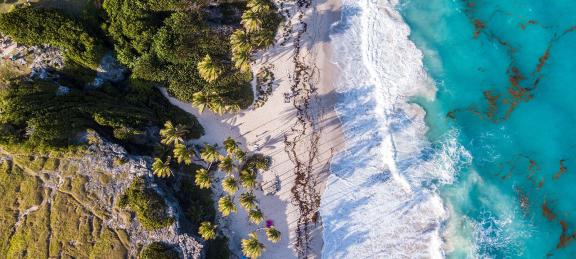
FP216
Adaptation

FP217
Cross-cutting

FP219
Cross-cutting

FP222
Cross-cutting

FP223
Cross-cutting

SAP026
Adaptation

SAP031
Adaptation

SAP033
Adaptation

2020
2021
2022
2023
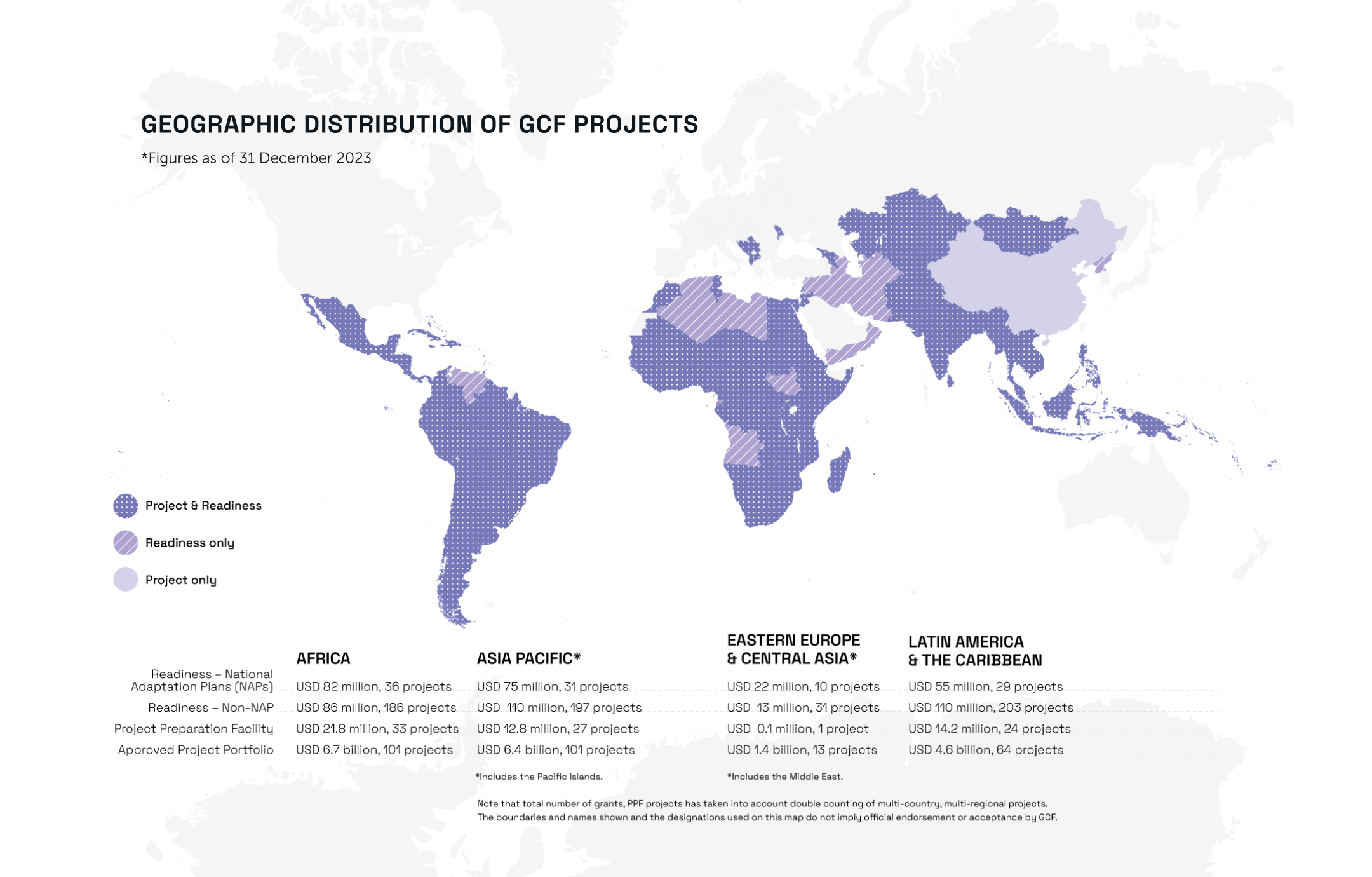
GCF snapshot (in USD)
0.0
0.0
+
0.0
0
0
0
0.0
Approved projects value by theme
(Grant equivalent*)
Approved projects value by priority countries
8 New Accredited Entities
*Nominal values are used throughout unless it is indicated that figures are grant equivalent. The grant equivalent calculator tool, developed by the Office of Risk Management and Compliance of GCF, converts the value of different grant and non-grant instruments into a comparable grant equivalent value. The grant equivalents were estimated for each project using a uniform 5 per cent discount rate.
New project spotlight
see All approved projects
Looking
ahead
50by30: a vision for the future
At the start of her term, GCF Executive Director Mafalda Duarte set out “50by30”, a vision that will enable the Fund to efficiently manage USD 50 billion by 2030. 50by30 aims to realise GCF’s full potential as a partner of choice for country-led climate action by:
- Boosting support for the most vulnerable people and communities
- Enhancing private sector capital mobilisation and investments
- Reinventing GCF’s partnership model, including the accreditation process
- Driving efficiencies in processes with a focus on impact
- Pivoting operations to support ambitious country-led investment programmes over isolated projects
To reach its 50by30 vision, GCF will deliver climate investments at scale and with the highest impact possible, through faster, simpler processes with reduced transaction costs. To achieve this, a GCF reform agenda was launched in late 2023 with several initiatives to make the Fund more efficient, effective and fit-for-purpose.
The Green Climate Fund is a unique institution. It has the scale of resources, the flexibility to address key barriers and risks, and the ability to not only support institutions that have not previously received climate finance but also bring together different institutions for greater impact….I commend the founding parties of the GCF for their vision and call on its champions to help us fully honour that initial vision and unique potential.
Mafalda Duarte, GCF Executive Director
Strategic Plan 2024-2027
Adopted by the GCF Board in July 2023, the Strategic Plan sets out GCF’s major programming directions for GCF-2. The plan has a strengthened focus on helping developing countries translate their NDCs, NAPs and LTS into climate investments and programming and on significantly improving access for developing countries to GCF finance. It also sets a comprehensive set of targeted results to be delivered, covering ambitions around supporting developing countries.
Programming priorities 2024–2027
- Empower developing countries
- Mobilise the private sector
- Improve access
- Protect the most vulnerable
Jeans that don’t cost the Earth
-
- Total project value
- USD 1.4 b
-
- GCF financing
- USD 973.0 m
-
- Beneficiaries
- 72.8 k
-
- Emissions avoided
- 27.5 m tonnes

Photo: © EBRD
With the European Bank for Reconstruction and Development (EBRD) and the European Union, GCF is supporting Emessa, a denim producer based in Egypt, in pioneering energy-efficient ready-made garments in Egypt. The company reduced its energy consumption by about 28%, cut its CO2 emissions by 46 tonnes a year, and decreased its water consumption by 50%.
Read full project story
GCF-2 replenishment
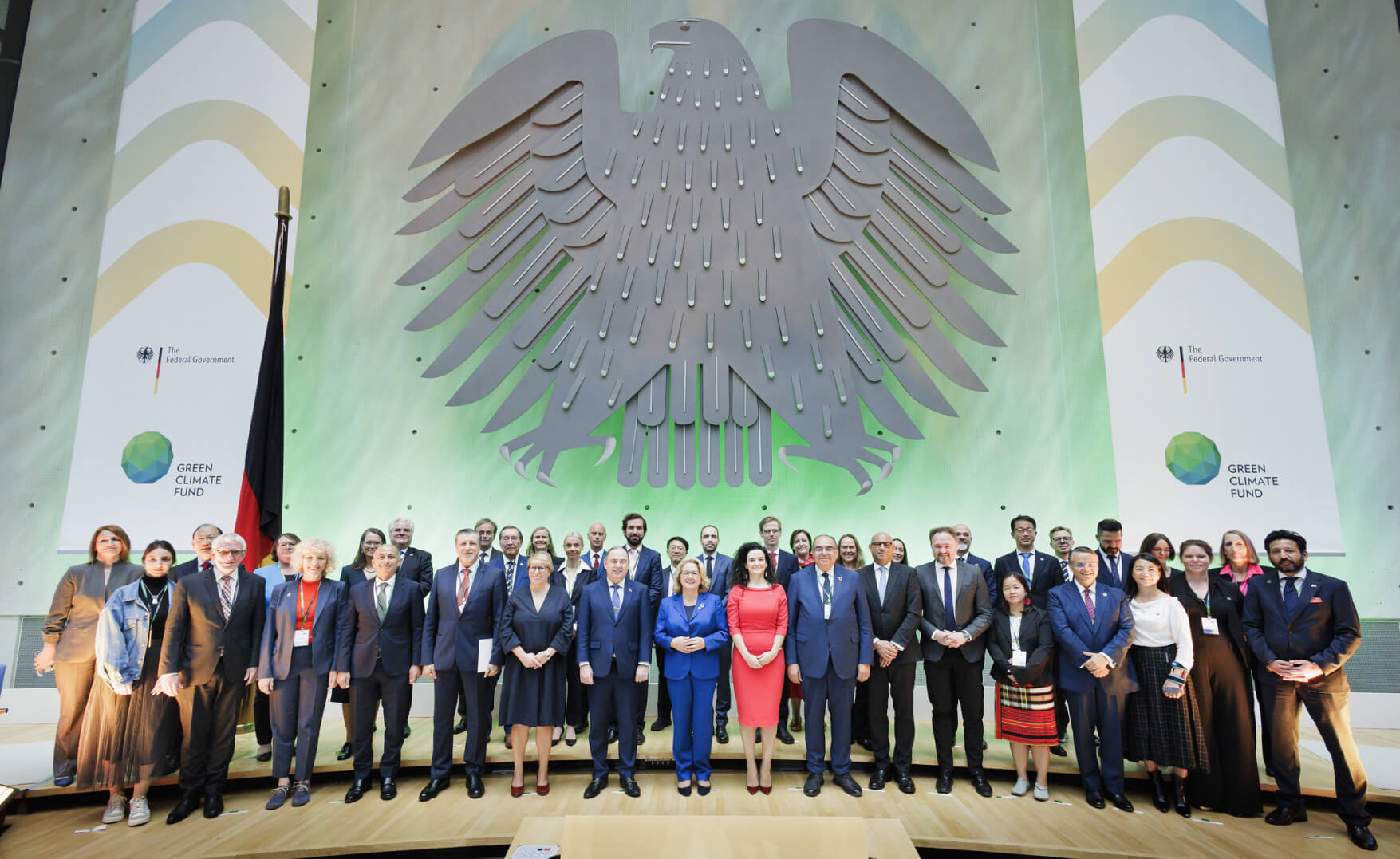
Co-hosted with Germany, the GCF High-level Pledging Conference took place in Bonn, Germany on 5 October 2023. Photo: © GCF / Ute Grabowsky
GCF’s replenishment for its 2024-2027 programming period raised a record-breaking amount of USD 12.8 billion in support from 31 countries by the end of 2023. For more details on GCF-2 pledged contributions, please see here.
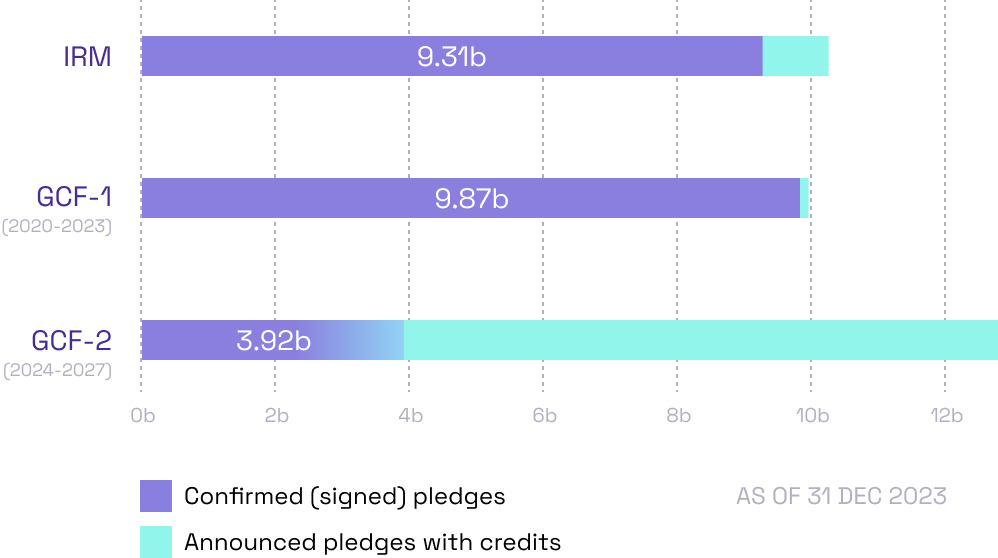
Among the 31 countries that pledged support to GCF, 20 increased their pledged amount compared with the previous replenishment: Austria, Belgium, Bulgaria, Canada, Denmark, France, Germany, Iceland, Ireland, Liechtenstein, Luxembourg, Monaco, Netherlands, New Zealand, Portugal, Republic of Korea, Slovakia, Slovenia, Spain and the United Kingdom.
Five countries returned as contributors (having pledged support in GCF’s Initial Resource Mobilisation period): Australia, Czechia, Estonia, Mongolia and the United States. Three are Non-Annex 1 Parties under the UNFCCC: Republic of Korea, Mongolia, and Israel, also a new contributor.
The replenishment is a demonstration of the high level of ambition of countries and their confidence in GCF to deliver transformative climate action.
GCF is thankful to all contributors for their support.
This commitment is a strong show of Germany’s readiness to take on its responsibility for global climate action…. climate action will only be successful if it is a global effort.
Svenja Schulze, Federal Minister for Economic Cooperation and Development, Germany
Empowering climate resilience in smallholder farmers
-
- Total project value
- USD 56.0 b
-
- GCF financing
- USD 23.0 m
-
- Beneficiaries
- 10.0 k
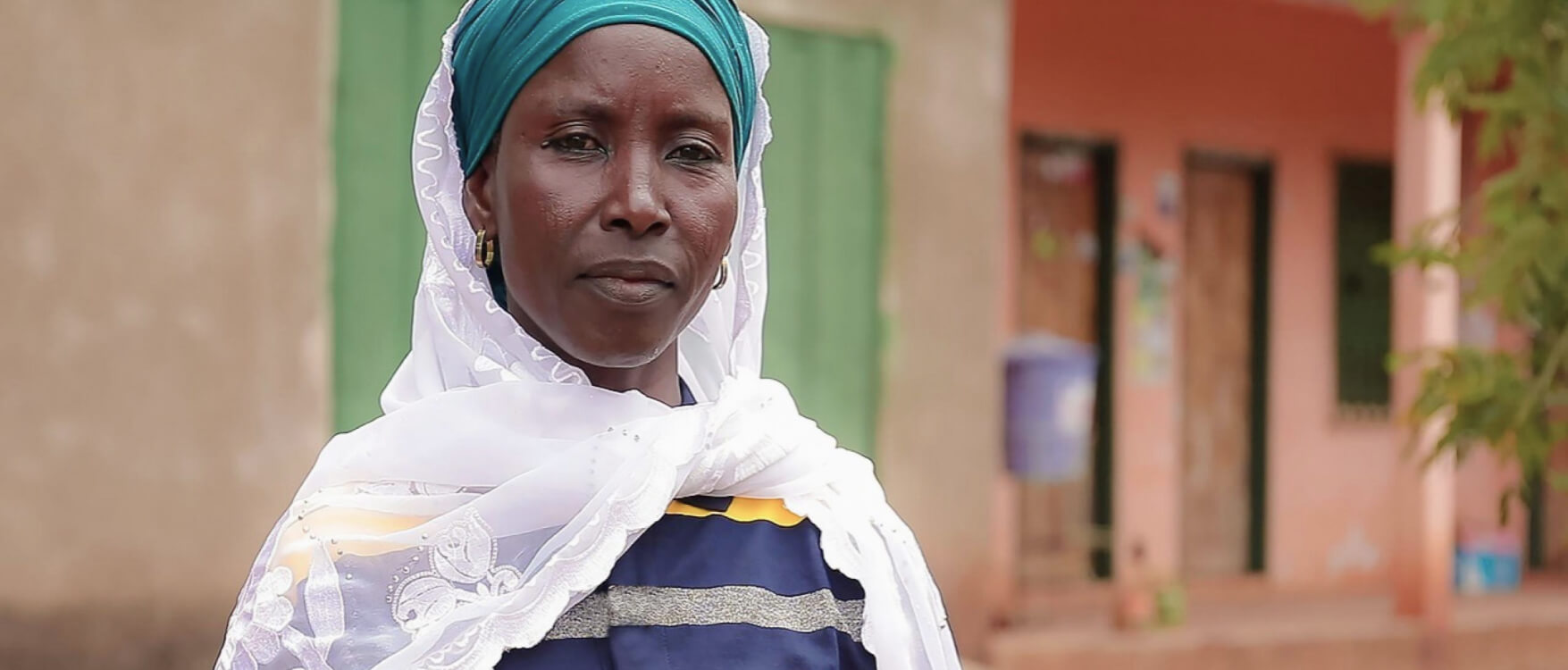
Salima Zachari, an enterprising farmer from Gushegu in Ghana. Photo: Farmerline
The GCF-supported Acumen Resilient Agriculture Fund (ARAF) is the world’s first equity fund to build the climate resilience of smallholder farmers in Africa. ARAF invests in early and early-growth stage agribusinesses such as Farmerline, which provides farmers access to essential tools and resources like a national helpline to empower them with climate-smart information in local languages. Over a million farmers in West Africa like Salima Zachari in Ghana have access to weather information, local market prices, and sustainable farming practices.
Read full project story
Financial highlights
Administrative budget
GCF’s administrative expenses cover the operations of the Secretariat (including staffing costs, contractual services, consultancies, and travel), as well as Board activities, and Trustee activities. The Secretariat’s costs for the year amounted to USD 81.5 million. They were allocated according to the breakdown displayed here. GCF’s financial statements are audited each year by an independent auditor. These are usually available in the third quarter of the following year. Previous audited financial statements are available via g.cf/financialstatements.
GCF Secretariat 2023 Expenditure
Status of contributions
Replenishments to GCF by contributor countries is an important element of the financial commitments needed to deliver on the Paris Agreement goals. By the end of 2023, 31 countries pledged USD 12.8 billion in support to GCF for GCF-2, the 2024-2027 programming period.
100% of pledges for GCF-1 replenishment (2020 -2023) were confirmed from 34 contributors who pledged over USD 10 billion (based on GCF-1 reference exchange rate). All pledges were confirmed through signing of contribution agreements, which uses a USD equivalent reference rate for individual contributions. More details are available on the resource mobilisation section of the GCF website.
GCF-1 Pledges
GCF financial flows (in USD billions*)
